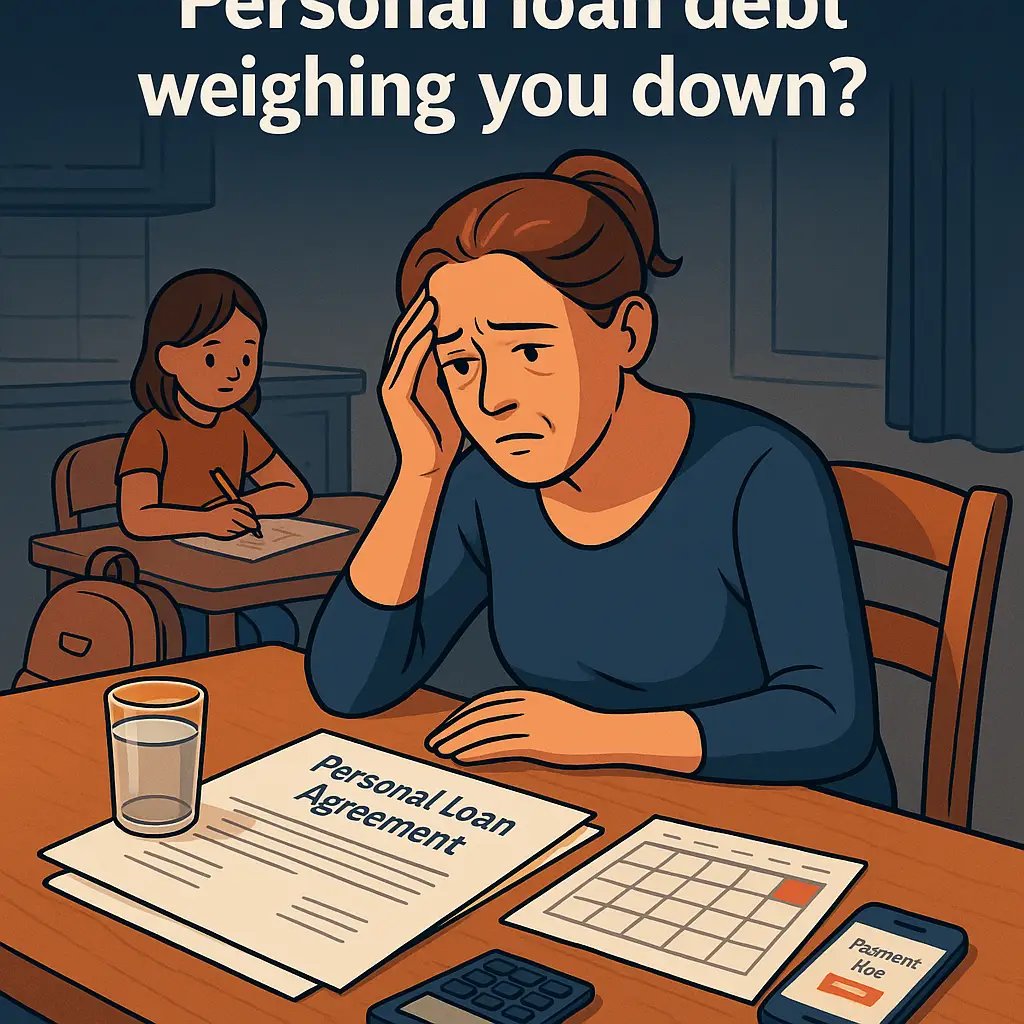Guide to Personal Loan Debt in the United States
What Is Personal Loan Debt?
Personal loan debt is an unsecured type of debt resulting from borrowing money through a bank, credit union, or online lender. These loans are typically used for debt consolidation, large purchases, emergency expenses, or significant life events.
Since personal loans are not backed by collateral, approval and rates depend on your credit score, income, and debt-to-income ratio. Failure to repay can result in collections, lawsuits, and damage to your credit, but not the loss of specific assets like a home or car.
Why Do Personal Loans Often Go to Collections?
- Fixed Monthly Payments: Missing one or more fixed payments puts the account at risk of default.
- Loan Terms Are Strict: Unlike credit cards, lenders may not offer flexible repayment once the loan is active.
- No Collateral: Lenders have fewer recovery options and often move quickly to collections.
- Use for Emergencies: Many people use personal loans as a last resort, which may indicate financial instability.
The Collection Process for Personal Loans
- Delinquency: After one or more missed payments, the account becomes delinquent.
- Default: Most lenders charge off the loan after 120–180 days of non-payment.
- Third-Party Collection: The loan may be sold or assigned to a debt collector.
- Credit Reporting: The missed payments and default status will negatively impact your credit for up to 7 years.
- Legal Action: Collectors may file a lawsuit to obtain a judgment. If successful, they can pursue wage garnishment or bank levies, depending on state laws.
Debt Settlement for Personal Loans
- Definition: Debt settlement involves negotiating to pay less than the full amount owed, usually as a lump-sum payment.
- Who Can Settle:
- You can settle the loan yourself
- You may hire an attorney or a debt settlement company
- Timing: Most lenders are open to settlement only after default or charge-off.
- Impact on Credit: Settling a personal loan for less than the full amount will significantly lower your credit score—often by 50 to 100 points or more—and the “settled” status remains on your credit report for up to seven years. This can make it harder to get new credit or loans in the future.
- State Regulations: Some states require that only attorneys negotiate settlements, and some regulate or ban for-profit debt settlement companies.
Consumer Rights and Protections (Personal Loans)
FDCPA Coverage
The Fair Debt Collection Practices Act (FDCPA) protects consumers from harassment, abuse, and deception by third-party debt collectors (not the original lender) pursuing unpaid personal loans. You have the right to request written validation of the debt and to dispute any inaccuracies.
Your Right to Validation
You can request written verification of the debt, including:
- The name of the original lender
- The amount owed
- Your right to dispute the debt within 30 days of contact
State Law Protections for Borrowers
- Statute of Limitations: Each state has its own time limit—usually between 3 and 10 years—for how long a lender or collector can sue you over a personal loan. Always check your state’s specific rules or consult a lawyer, as misinterpreting the statute can have serious consequences.
- Licensing Laws: Most states require debt collectors to be licensed to collect or sue legally, and some cities have their own licensing requirements. For example, in California, agencies must include their state license number in all communications with consumers.
- Wage Garnishment Laws: States vary in how much of your paycheck can be garnished following a court judgment.
Check with your state Attorney General or consumer protection office for local regulations.
States Where Collectors Do NOT Require a License (as of 2024)
Georgia, Kansas, Kentucky, Michigan, Missouri, Montana, New Hampshire, Oklahoma, Pennsylvania, South Carolina, South Dakota, Tennessee, Wyoming
These rules can change. Some cities and counties have their own licensing requirements.
Why Licensing Matters
If a collector is unlicensed in a state that requires it:
- They cannot legally collect or sue you there
- You can dispute the validity of the debt or even file a complaint
- Licensing helps protect you from fraudulent or abusive collectors
How to Verify a Personal Loan Collector
- Ask for written debt validation
- Confirm that the collector is licensed (if required) via your state’s official website
- Contact your original lender to ensure the debt was legitimately transferred
- Look for red flags:
- Threats of jail or violence
- Refusal to give documentation
- Demands for payment via gift cards or crypto
Options for Managing Personal Loan Debt
- Renegotiate with Lender: Some lenders may allow payment plans or extensions before default.
- Debt Settlement: After default, you can often negotiate a lump-sum payoff.
- Dispute or Validate: Use your right under the FDCPA to dispute any inaccurate debt.
- Debt Resolution Firms: Law firms or companies may assist with validation, negotiation, and credit restoration.
- Bankruptcy: Chapter 7 or 13 may eliminate or restructure your personal loan obligations if you have multiple debts.
Key Takeaways
- Personal loans are unsecured and often go to collections after just a few missed payments.
- Debt settlement is possible, especially after default, but it impacts your credit.
- Consumers have substantial protections under federal law (FDCPA) and many state laws.
- Always validate a debt and check if the collector is licensed in your state.
Sources
- https://www.consumerfinance.gov/ask-cfpb/what-is-a-personal-loan-en-1041/
- https://www.ftc.gov/news-events/media-resources/consumer-finance/debt-collection
- https://www.nolo.com/legal-encyclopedia/debt-collection-state-laws.html
- https://www.consumerfinance.gov/consumer-tools/debt-collection/
- https://www.nclc.org/issues/debt-collection.html

